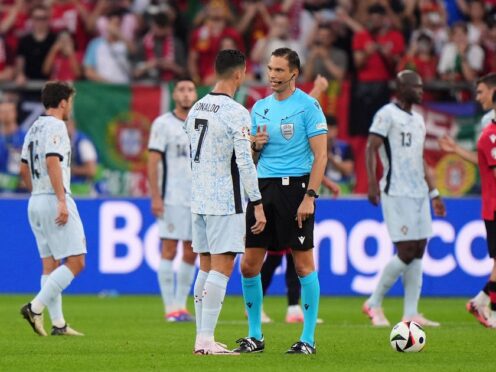
A Euro 2024 initiative to restrict dialogue with referees solely to a team’s captain will be rolled out across all UEFA competitions in the coming season, European football’s governing body has said.
UEFA hailed the “success” of the initiative in a media release issued on Friday, under which any other player approaching the referee is yellow-carded for dissent. The approach mirrors a similar proposal being trialled by the International Football Association Board (IFAB) in an effort to improve player behaviour and respect towards referees.
Now competitions like the men’s and women’s Champions League will adopt the same approach in 2024-25.

“The success of this new approach, understood by the actors of the game and welcomed by the public opinion as unquestionable progress for the image of football, boosts our confidence that this is the way forward. Fair play and respect are values that football, the most popular game in the world, must convey to our societies,” a UEFA release stated.
“Starting with the new season of UEFA club competitions ready to kick off next week, this approach will therefore be extended to all matches in UEFA competitions.”
Where a captain is the goalkeeper, teams must nominate a single outfield player to be the one designated to communicate with the referee.
UEFA referees’ chief Roberto Rosetti spoke positively about the initiative in a briefing held at the end of the group stage, highlighting in particular dialogue between Scotland captain Andy Robertson and French referee Clement Turpin during the opening game against Germany, which took place while VAR reviewed a penalty award for the hosts and a red card for Scotland defender Ryan Porteous for dangerous play.
UEFA reported there had been 166 yellow cards shown in the group phase at Euro 2024, compared to just 98 at Euro 2020.

Enjoy the convenience of having The Sunday Post delivered as a digital ePaper straight to your smartphone, tablet or computer.
Subscribe for only £5.49 a month and enjoy all the benefits of the printed paper as a digital replica.
Subscribe